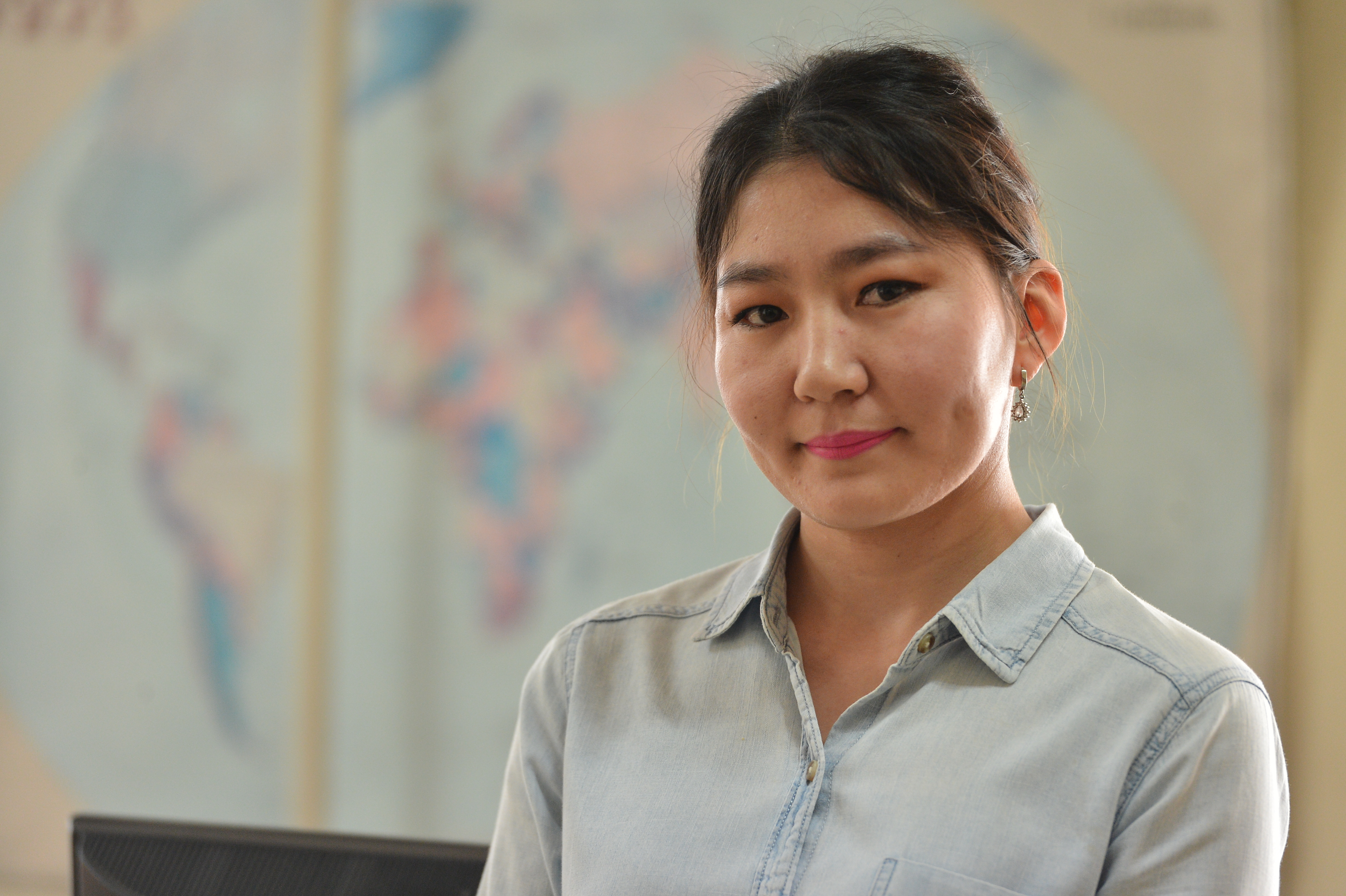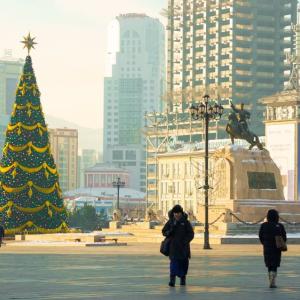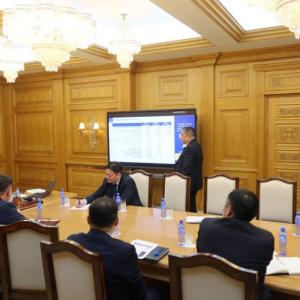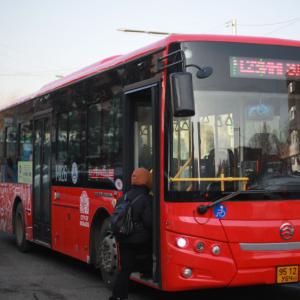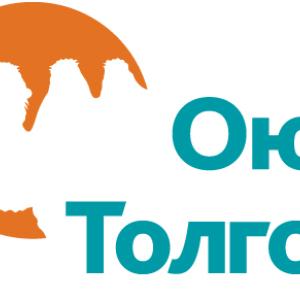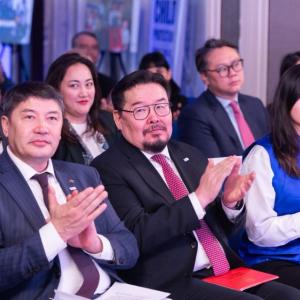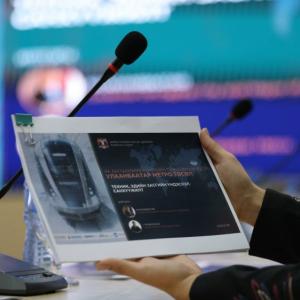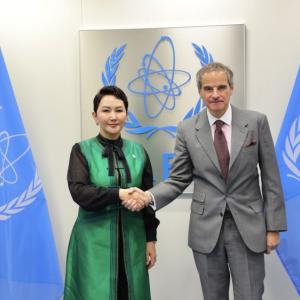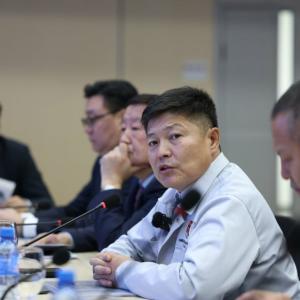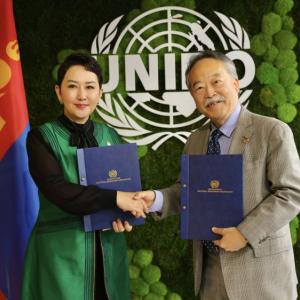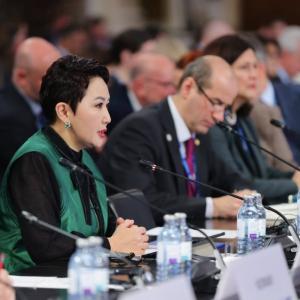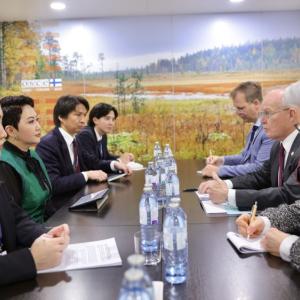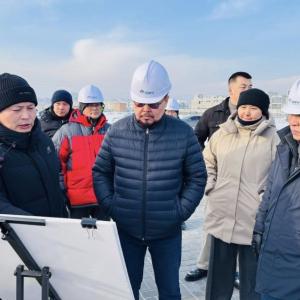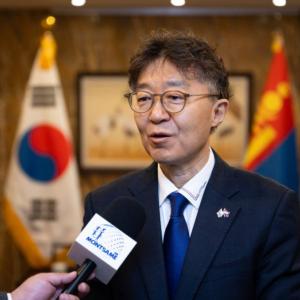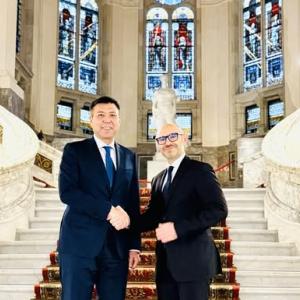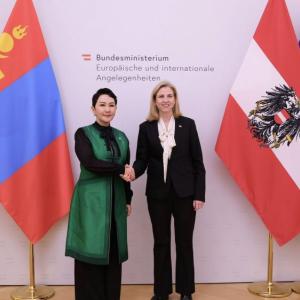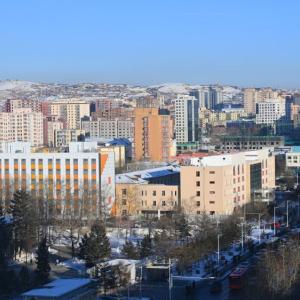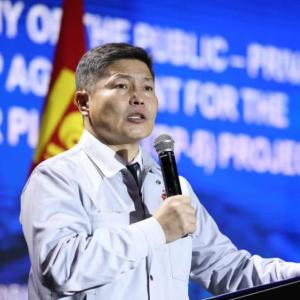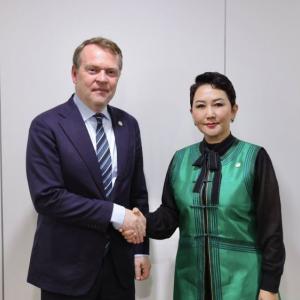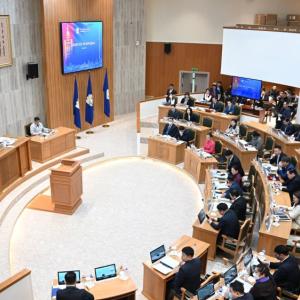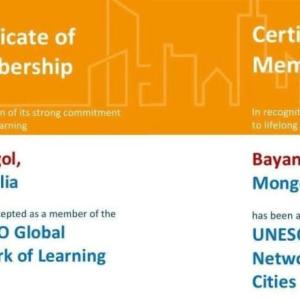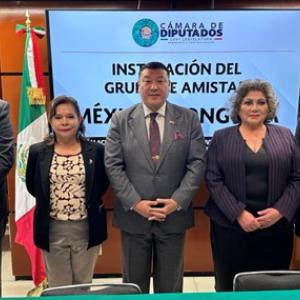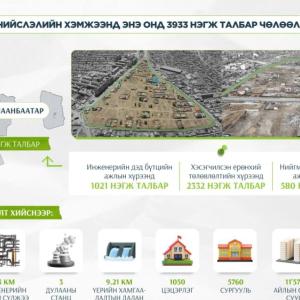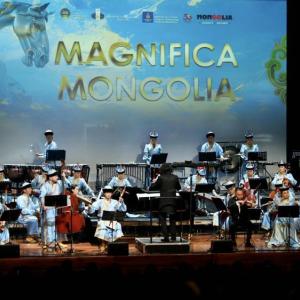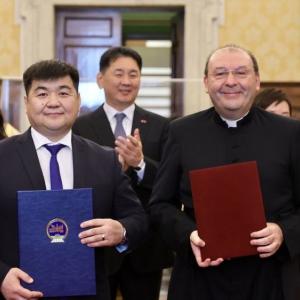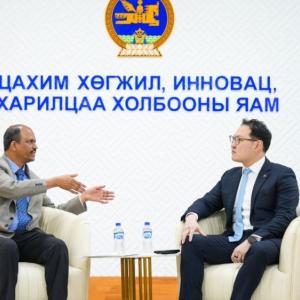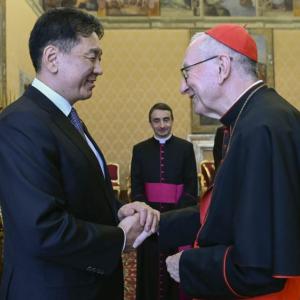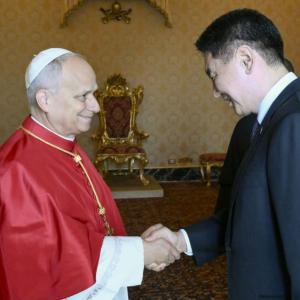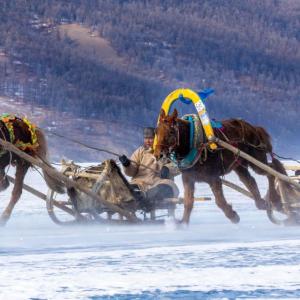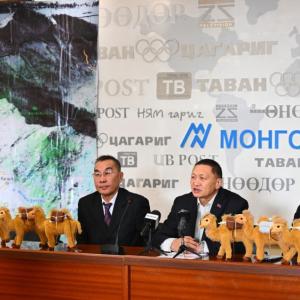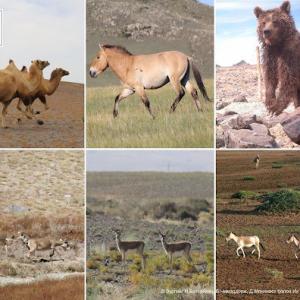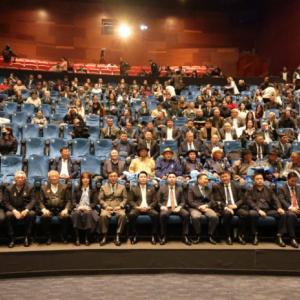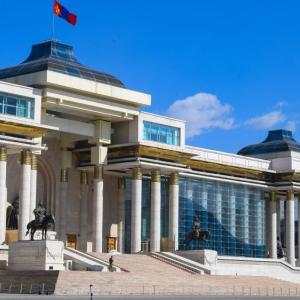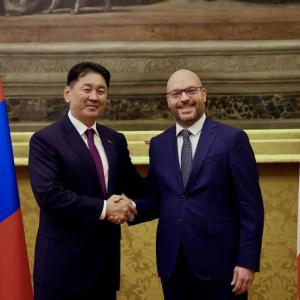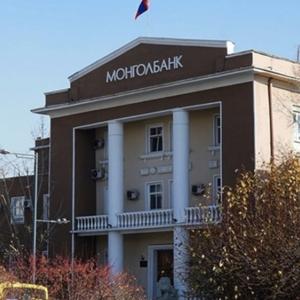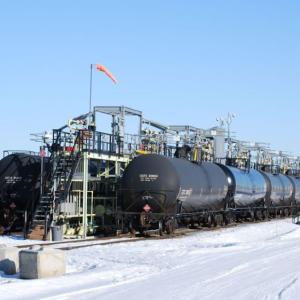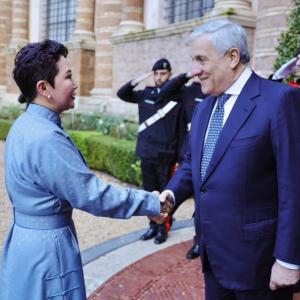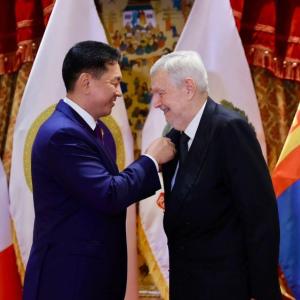President Battulga addresses speech at the extended session of the 4th Eastern Economic Forum
Politics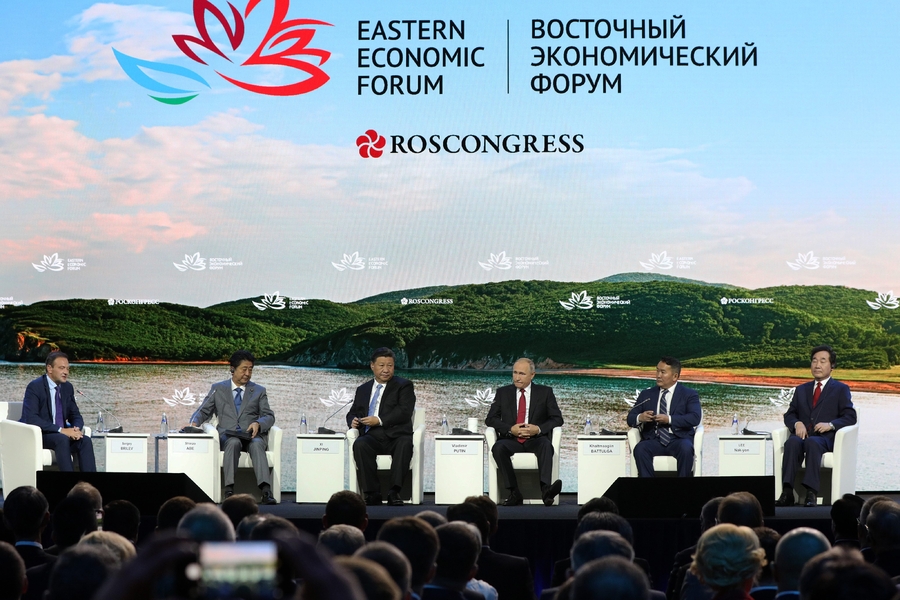
Ulaanbaatar /MONTSAME/ The Eastern Economic Forum is continuing on the second day in Russian city Vladivostok. President of Mongolia Kh.Battulga attended the extended session of the forum today and gave a speech. The President said:
At the outset, I would like to express my sincere appreciation to the President of the Russian Federation for inviting me to the Eastern Economic Forum once again.
The annual Eastern Economic Forum is evolving as an important dialogue platform for defining the directions of further cooperation among the countries in the Asia-Pacific region.
Developing friendly and good neighborly relations as well as promoting all-round cooperation with our neighboring countries – the Russian Federation and the People’s Republic of China, and engaging in regional political and economic integration are priority directions of Mongolia’s foreign policy.
I held bilateral and trilateral meetings with the heads of states of Russia and China in Qingdao in June this year and reaffirmed our aspiration to further deepen our cooperation.
Ladies and Gentlemen,
This year’s forum is being organized under the theme of ‘The Far East: Expanding the Range of Possibilities’. I, see the theme as participant countries are seeking new opportunities to intensify both bilateral and multilateral cooperation.
Russia’s Far Eastern region is an important gateway and opportunity for Mongolia to deepen collaboration with regional countries and engage in regional integration process.
As you can see it on the screen, we are planning to export our products to the world market by transporting via railroad through our two neighbors’ territories and utilizing their sea ports. With this objective, the Parliament of Mongolia adopted the State Policy on Railway Transportation in 2010. This policy is being implemented successfully. Concluding the “Intergovernmental Agreement between the Governments of Mongolia and the Russian Federation on Terms for Rail Freight Transit Transportation” in June this year was a big step forward.
Moreover, Mongolia has signed important documents with China including “Agreement on Access to and from the Sea and Transit Transport through China’s Territory by Mongolia” as well as the “Intergovernmental Cooperation Agreement between Mongolia and China on Railway Transit Transportation”.
Conclusion of these agreements has unlocked broader possibilities for Mongolia to trade with Northeast Asian countries and others by transiting through our neighbors’ territories and sea ports. I would like to thank President Putin and President Xi Jinping for their support in signing the above mentioned agreements enabling Mongolia to gain access to the sea and join international trade and economic integration.
Mongolia is a country that enjoys excellent relations with its neighbors and countries in the region, and we have no single contentious issue nor dispute with any of them. Therefore, Mongolia has proposed the initiatives, such as ‘Ulaanbaatar Dialogue’ to promote dialogue and strengthen mutual understanding among the countries in the region.
While we aim to further strengthen high-level political relations, we also strive to align our development policy with those of regional countries and jointly implement major projects. For instance, we are currently working together to implement the 'Mongolia-Russia-China Economic Corridor'. During our meeting in Qingdao, I discussed with President Putin and President Xi Jinping about the commencement of certain projects within the program.
We are ready to cooperate on passing the planned natural gas pipeline from Russia to China through Mongolian territory. As I would like to thank President Putin for supporting Mongolia’s proposal, I express my hope that President Xi Jinping would also support this initiative. We stand ready to create a favorable legal environment for the project.
In order to further broaden cooperation with our major trade and investment partners and provide more favorable investment environment, Mongolia signed the Economic Partnership Agreement with Japan in 2016 and has concluded the joint feasibility study on signing similar agreement with the Republic of Korea. We are also discussing to commence the feasibility study for a Free Trade Agreement with the Eurasian Economic Union.
Ladies and Gentlemen,
Mongolia’s economic downturn has been reversed and growth is stabilizing. GDP growth reached 5.3 percent in 2017 and 6.3 percent in the first half of 2018. We are steering to reduce the vulnerability of our economy’s dependency on the mining sector. In an effort to diversify the economy, we are pursuing policies to increase the trade turnover with our main partners, and to boost export of value-added and non-mining products.
I wish to reaffirm, from this podium, that Mongolia will continue adhering the policies of actively developing bilateral and multilateral trade and economic cooperation with the regional countries. Therefore, in order to thoroughly explore the possibility of developing an economically viable cooperation, I would like to make a concrete proposal.
I would like to request your attention to the screen.
In recent years, countries, including Russia, China, Japan, South Korea and Mongolia, as well as the United Nations have discussed the establishment of an energy regional super grid and have individually conducted researches and calculations and held joint conferences.
I call upon the urgent and prompt commencement of the ‘North East Asian Super Grid’ project which can share the load during the peak hours and will be a resource-efficient and optimal solution for supplying Northeast Asian countries with energy.
As the beginning of this super grid, I am pleased to announce that Mongolia and China are starting a joint project for energy complex and high-voltage transmission line. The complex will comprise of stations with an installed capacity of 5350 MW from solar, wind and coal sources. Moreover, a 1500 km long high-voltage direct current will be constructed. Research and feasibility study of the complex are completed and the construction work will commence shortly.
Mongolia, as a country with vast territory, can help reduce loads during peak hours in Japan and Korea with its energy production from solar and wind sources by utilizing seasonal and time difference, as well as back-up energy sources. Use of a renewable energy will certainly be welcomed by consumers in all countries.
It is therefore necessary to establish an organization with appropriate involvement of Mongolia, Russia, China, Japan, South and North Korea, six countries that share responsibilities to successfully implement the ‘North East Asian Super Grid’ project. The organization is to formulate a comprehensive policy by integrating all prior research works for the project and prepare relevant agreements and negotiations.
We are ready to host and support this organization in Mongolia. In order to establish the organization urgently, we propose to launch a joint working group with involved parties promptly (during this forum).
I wish a great success to the forum.
At the outset, I would like to express my sincere appreciation to the President of the Russian Federation for inviting me to the Eastern Economic Forum once again.
The annual Eastern Economic Forum is evolving as an important dialogue platform for defining the directions of further cooperation among the countries in the Asia-Pacific region.
Developing friendly and good neighborly relations as well as promoting all-round cooperation with our neighboring countries – the Russian Federation and the People’s Republic of China, and engaging in regional political and economic integration are priority directions of Mongolia’s foreign policy.
I held bilateral and trilateral meetings with the heads of states of Russia and China in Qingdao in June this year and reaffirmed our aspiration to further deepen our cooperation.
Ladies and Gentlemen,
This year’s forum is being organized under the theme of ‘The Far East: Expanding the Range of Possibilities’. I, see the theme as participant countries are seeking new opportunities to intensify both bilateral and multilateral cooperation.
Russia’s Far Eastern region is an important gateway and opportunity for Mongolia to deepen collaboration with regional countries and engage in regional integration process.
As you can see it on the screen, we are planning to export our products to the world market by transporting via railroad through our two neighbors’ territories and utilizing their sea ports. With this objective, the Parliament of Mongolia adopted the State Policy on Railway Transportation in 2010. This policy is being implemented successfully. Concluding the “Intergovernmental Agreement between the Governments of Mongolia and the Russian Federation on Terms for Rail Freight Transit Transportation” in June this year was a big step forward.
Moreover, Mongolia has signed important documents with China including “Agreement on Access to and from the Sea and Transit Transport through China’s Territory by Mongolia” as well as the “Intergovernmental Cooperation Agreement between Mongolia and China on Railway Transit Transportation”.
Conclusion of these agreements has unlocked broader possibilities for Mongolia to trade with Northeast Asian countries and others by transiting through our neighbors’ territories and sea ports. I would like to thank President Putin and President Xi Jinping for their support in signing the above mentioned agreements enabling Mongolia to gain access to the sea and join international trade and economic integration.
Mongolia is a country that enjoys excellent relations with its neighbors and countries in the region, and we have no single contentious issue nor dispute with any of them. Therefore, Mongolia has proposed the initiatives, such as ‘Ulaanbaatar Dialogue’ to promote dialogue and strengthen mutual understanding among the countries in the region.
While we aim to further strengthen high-level political relations, we also strive to align our development policy with those of regional countries and jointly implement major projects. For instance, we are currently working together to implement the 'Mongolia-Russia-China Economic Corridor'. During our meeting in Qingdao, I discussed with President Putin and President Xi Jinping about the commencement of certain projects within the program.
We are ready to cooperate on passing the planned natural gas pipeline from Russia to China through Mongolian territory. As I would like to thank President Putin for supporting Mongolia’s proposal, I express my hope that President Xi Jinping would also support this initiative. We stand ready to create a favorable legal environment for the project.
In order to further broaden cooperation with our major trade and investment partners and provide more favorable investment environment, Mongolia signed the Economic Partnership Agreement with Japan in 2016 and has concluded the joint feasibility study on signing similar agreement with the Republic of Korea. We are also discussing to commence the feasibility study for a Free Trade Agreement with the Eurasian Economic Union.
Ladies and Gentlemen,
Mongolia’s economic downturn has been reversed and growth is stabilizing. GDP growth reached 5.3 percent in 2017 and 6.3 percent in the first half of 2018. We are steering to reduce the vulnerability of our economy’s dependency on the mining sector. In an effort to diversify the economy, we are pursuing policies to increase the trade turnover with our main partners, and to boost export of value-added and non-mining products.
I wish to reaffirm, from this podium, that Mongolia will continue adhering the policies of actively developing bilateral and multilateral trade and economic cooperation with the regional countries. Therefore, in order to thoroughly explore the possibility of developing an economically viable cooperation, I would like to make a concrete proposal.
I would like to request your attention to the screen.
In recent years, countries, including Russia, China, Japan, South Korea and Mongolia, as well as the United Nations have discussed the establishment of an energy regional super grid and have individually conducted researches and calculations and held joint conferences.
I call upon the urgent and prompt commencement of the ‘North East Asian Super Grid’ project which can share the load during the peak hours and will be a resource-efficient and optimal solution for supplying Northeast Asian countries with energy.
As the beginning of this super grid, I am pleased to announce that Mongolia and China are starting a joint project for energy complex and high-voltage transmission line. The complex will comprise of stations with an installed capacity of 5350 MW from solar, wind and coal sources. Moreover, a 1500 km long high-voltage direct current will be constructed. Research and feasibility study of the complex are completed and the construction work will commence shortly.
Mongolia, as a country with vast territory, can help reduce loads during peak hours in Japan and Korea with its energy production from solar and wind sources by utilizing seasonal and time difference, as well as back-up energy sources. Use of a renewable energy will certainly be welcomed by consumers in all countries.
It is therefore necessary to establish an organization with appropriate involvement of Mongolia, Russia, China, Japan, South and North Korea, six countries that share responsibilities to successfully implement the ‘North East Asian Super Grid’ project. The organization is to formulate a comprehensive policy by integrating all prior research works for the project and prepare relevant agreements and negotiations.
We are ready to host and support this organization in Mongolia. In order to establish the organization urgently, we propose to launch a joint working group with involved parties promptly (during this forum).
I wish a great success to the forum.
source:president.mn
 Ulaanbaatar
Ulaanbaatar





